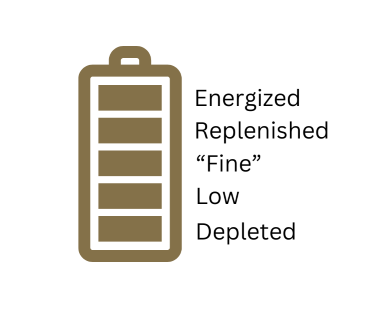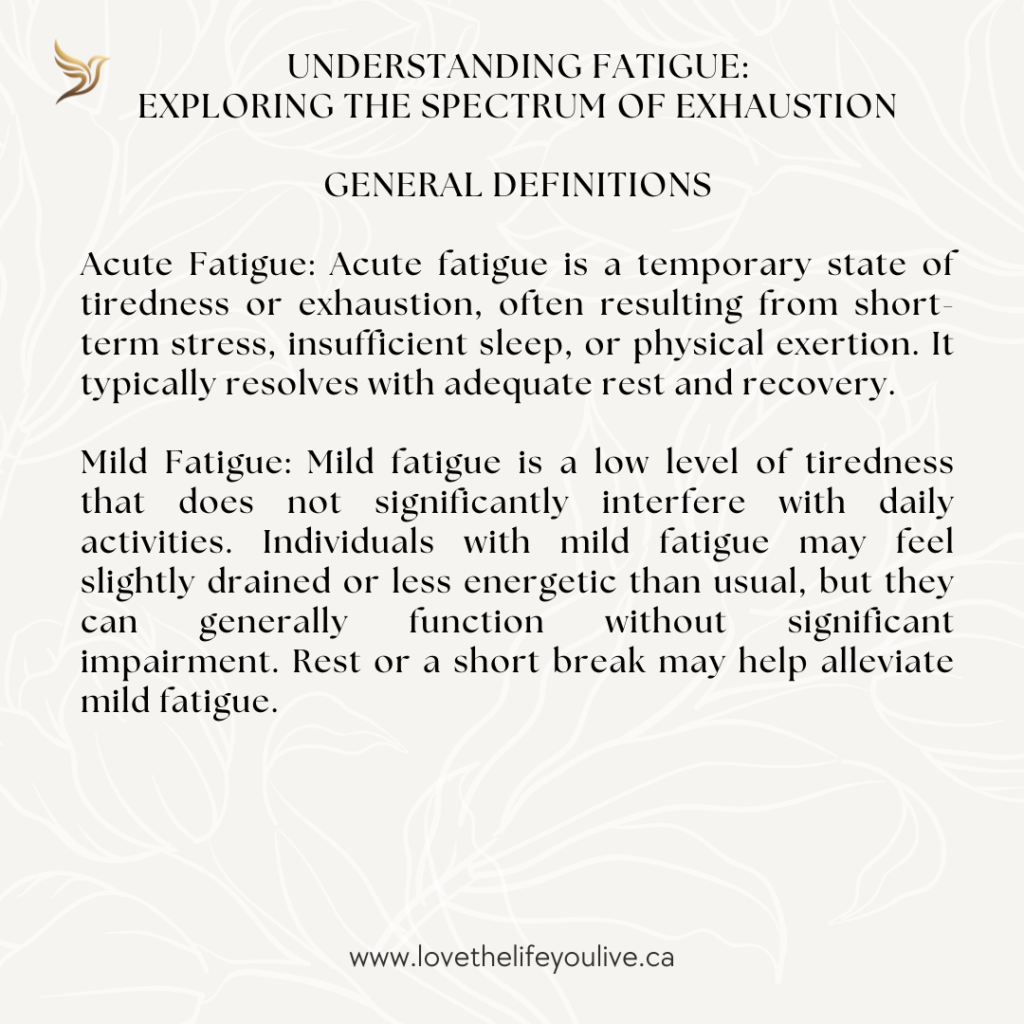
I offer these practical definitions for varying fatigue levels from the perspective of a Health Coach to help you and me communicate, understand and explore interventions for the nature and severity of fatigue in the context of lifestyle interventions and behavioural changes. It is essential to note that there may not be strictly defined categories for fatigue by universally accepted medical definitions.
These descriptions, definitions, posts, or discussions do not replace the importance of a thorough medical evaluation to assess and diagnose fatigue and tailor interventions. The most appropriate treatment strategies can vary widely from person to person. It’s also important to note that people’s experience of fatigue can be subjective, and individuals may perceive and describe their fatigue differently.
Multiple intersecting and overlapping factors may contribute to fatigue, including our unique physiology, environmental influences, relationships, stress, and lifestyle factors. Some people may experience fatigue that starts as mild and progresses to moderate or severe if the underlying causes are not addressed. Others may experience sudden and severe fatigue due to acute factors or specific medical conditions. Early recognition and addressing the underlying factors contributing to fatigue can prevent it from escalating to more severe levels.
We know from research that fatigue is related to many chronic conditions. Working with a qualified medical professional and assessing the lifestyle factors that are contributing to fatigue are the first steps in developing a strategy to address fatigue effectively.

